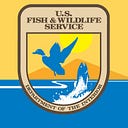Passion for conservation
US Fish and Wildlife Service offers exciting new internship opportunities for careers in conservation
Are you an undergraduate or graduate student looking for a career in the conservation world? Well look no further — the U.S. Fish and Wildlife Service collaborates with many organizations to offer paid internships that will help build those connections to endless possibilities. The most recent opportunity is a new partnership with the Hispanic Association of College and Universities (HACU) National Internship Program.
The HACU internships are geared to promote training and career opportunities for students interested in conservation. Interns are stationed at one of our field offices, national wildlife refuges or national fish hatcheries, and learn about the U.S. Fish and Wildlife Service’s mission and gain career development and overall experience in the field.
“I had a great internship experience with the Regional Office in Sacramento,” said Kelvin Salgado, who graduated from the University of California, Riverside, with a bachelor’s in biology.
“Prior to the internship, I hadn’t experienced conservation work at the federal level, much less know what that even meant. When I saw that there were positions with the Service through HACU, it immediately caught my attention because it was an opportunity to explore an aspect of conservation that I never had before.”
Salgado, an avid bird enthusiast who grew up in Los Angeles, California, landed an internship in the Migratory Bird Program.
“I had two main projects,” said Salgado. “The first was to create a guidance document for mineral developers creating eagle conservation plans and the second project involved writing species reports about at-risk birds in California, such as the ashy storm-petrel, burrowing owl and northern harrier. I met with species experts internally and externally and conducted literary reviews to compile the best available information for these birds.”
Those who aren’t familiar with the U.S. Fish and Wildlife Service mission gained knowledge and insight of what the agency is all about. Liz Menchaca, who recently graduated from the University of California, Santa Barbara, with a bachelor’s in environmental studies, was new to the Service and completed a virtual internship with the Sacramento Fish and Wildlife Office.
Menchaca explained, “This internship stood out to me because I didn’t know too much about U.S. Fish and Wildlife Service’s role and was interested in learning more.
“Growing up in Porterville, California, I lived near Sequoia National Park and Lake Success, so I’ve always had an appreciation for these natural places and what they had to offer. I know I want to be part of a team that helps protect these spaces and the wildlife that lives on them.”
Her internship consisted of various projects, including working closely with two divisions: military and waterway and conservation banking.
“I helped staff compile important data of integrated national resource management plans for various military installations, reviewed mitigation strategies for the Sacramento River Bank Protection Project and learned about biological opinions, which were new to me prior to the internship,” said Menchaca. “Everyone who I worked on these projects with were extremely helpful and huge resources for me — a major highlight of my experience.”
Whether it’s having the opportunity to work for a program you’re passionate about or learning the ins and outs of conservation — no internship is the same, but gaining new skills is a given.
Yulissa Perez Rojas, Ph.D. candidate at the University of California, Merced, virtually interned at the Carlsbad Fish and Wildlife Office in California.
“I was surprised at the amount of work that goes into conservation,” said Perez Rojas. “Some of my projects involved reading biological opinions and legal documents and assessing the risk of projects to species and their habitats, like for the endangered least Bell’s vireo and Arroyo toad.
“A crucial skill I learned: trusting my best judgement. I had to put my critical thinking skills to work and find the confidence within me to figure out why certain moves were the best path forward for protecting the species. It’s interesting to see how science is actually used to assess these plans and create the changes that need to be done.”
Overall, all the interns were interested in pursuing a career with the Service after their experiences and shared their final thoughts:
“If I get hired with the Service, I hope to carry out the Service’s mission of conserving and protecting wildlife in a way that considers as many perspectives as possible,” said Salgado. “I would also like to help increase diversity and representation in the Service whether that be through my own perspective, being the voice for others or working with communities to ensure that their needs are met.”
Perez Rojas said, “I would definitely go back to the Service and look into going the science route — that’s what really interests me. In the meantime, I would even be happy volunteering with the Service to gain more experience. With me being a DACA [Deferred Action for Childhood Arrivals] recipient, I really want other students like myself to see that there are opportunities for us to get involved in the government. Thanks to HACU, I was able to reach a goal I was envisioning for years.”
Menchaca reflected, “I hope to come back and work with the Service and be a public land steward. My one piece of advice: make sure you’re passionate about this type of work. It’s not always easy and requires a lot of patience at times but can be super rewarding in the end.”
Interested in learning more? Check out the Hispanic Association of College and Universities National Internship Program: https://www.hacu.net/hacu/HNIP.asp
Written by Rebecca Fabbri, digital strategist, California-Great Basin Region, U.S. Fish and Wildlife Service
